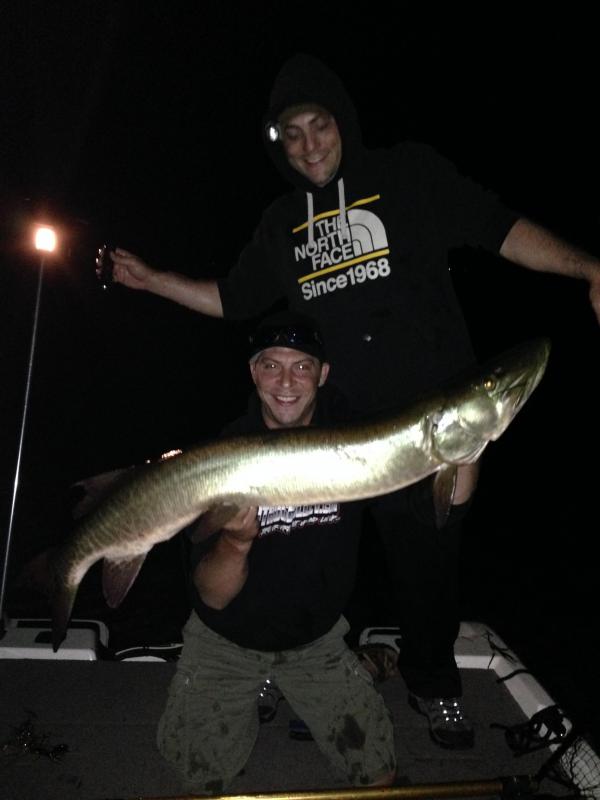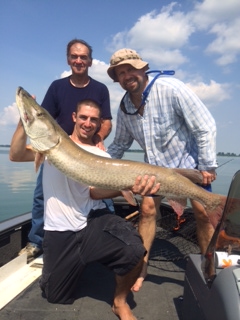|
|
Posts: 175
Location: Alexandria, MN | Here in MN (as in a few other states), in addition to our lakes with native Muskie populations, we have more and more lakes with introduced (stocked) populations as well where there was not originally a native population. I am curious as to how much natural reproduction occurs in these lakes (if any). If so, how many years of stocking does it take (generally) to get to that point? I realize that each fishery is different in regards to forage base, other native fish populations, lake size, depth, and structure, water quality, spawning habitat, etc., but do most of the "stocked" lakes get to the point where fish reproduce naturally, or are most of these lakes supported entirely by stocking?
Edited by phselect 8/3/2015 9:26 PM
|
|
| |
|
Posts: 1828
| On many lakes the stocking programs have discontinued and the muskie populations have since been sustained by natural reproduction. |
|
| |
|

Posts: 1283
| From what Ive read in IL the chance of natural reproduction in stocked lakes is very slim. Mostly do to the lack of spawning habitat and abundance of bottom feeders. |
|
| |
|

Posts: 483
Location: NE PA | It is my understanding that the DO levels play a major role in the survival of muskie fry, something many of the stocked lakes lack. The eggs also do not stick to structure/weeds like the eggs of a pike do, making them much more susceptible to being smothered with silt/sediment should there be heavy deposits of sediment from wind/waves/ or elevated water levels in say a river. I am certain that a percentage of the stocked lakes have all the necessary requirements to support reproduction. Of the lakes that have the required habitat, the length of time it takes will be dependent on the size/number of fish stocked, forage base, survival rate, ect... I would think that with sufficient stocking, 5-6 years in a smaller lake would be long enough to have a self sustaining, fishable population. |
|
| |
|
Posts: 1828
| lennyg3 - 8/18/2015 5:50 PM
I would think that with sufficient stocking, 5-6 years in a smaller lake would be long enough to have a self sustaining, fishable population.
What? 5-6 years is barely enough time for just some of the first batch of stocked fish to reach sexual maturity. |
|
| |
|

Posts: 483
Location: NE PA | jaultman - 8/19/2015 10:35 AM
lennyg3 - 8/18/2015 5:50 PM
I would think that with sufficient stocking, 5-6 years in a smaller lake would be long enough to have a self sustaining, fishable population.
What? 5-6 years is barely enough time for just some of the first batch of stocked fish to reach sexual maturity.
I agree completely. 5-6 years of continuous stocking should ensure that there are fish capable of taking over where the stocking has left off. |
|
| |
|
Posts: 1828
| I see what you mean, misunderstood at first. Thought you meant 5 years after initial stocking there would be a fishable, sustaining population.
I'm thinking 16 - 20 years gives enough time for the first batch or two to reproduce (7 - 10 years), then for their offspring to reach desirable sizes (another 8 - 10 years).
I hope I get to experience a "new reservoir syndrome" at some point in my musky career. Like Vermilion circa 2000 or so. |
|
| |
 Natural Reproduction in "Stocked" lakes
Natural Reproduction in "Stocked" lakes Natural Reproduction in "Stocked" lakes
Natural Reproduction in "Stocked" lakes